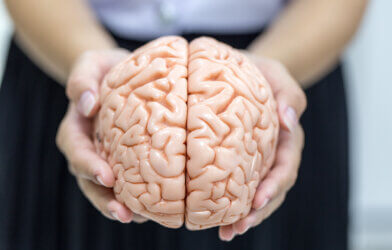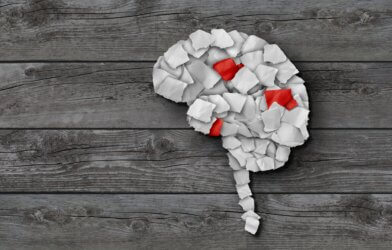Imagine a world where a simple hug, a gentle massage, or a loving caress could make you healthier and happier. Sounds too good to be true, right? Well, think again. An international team of researchers recently conducted a massive review of studies on the health effects of touch, and their findings confirm what many of us have intuitively known all along: affectionate touch is a potent elixir for both the body and mind.
The scientists, led by Julian Packheiser and Helena Hartmann, combed through over 200 studies involving nearly 13,000 participants ranging from newborn babies to the elderly. Using sophisticated statistical techniques, they combined and analyzed the results to get the clearest picture yet of how being touched by others impacts key markers of physical and mental well-being.
So what exactly did they find? In a nutshell, touch interventions like massages, hugs, and gentle stroking proved beneficial for people of all ages. For adults and children, affectionate touch was especially effective at reducing pain, depression, and anxiety. Just imagine – instead of popping a painkiller, you might reach for a loved one’s hand instead. For newborns, touch from caregivers helped regulate stress hormones and promoted healthy weight gain.
Interestingly, the source of the touch didn’t seem to matter much for grown-ups – a loving squeeze was equally soothing whether it came from a partner, friend, or professional massage therapist. Babies, on the other hand, reaped the greatest benefits when the affectionate touch came from a parent. This makes sense when you consider how touch helps forge that all-important bond between infants and their primary caregivers.
Researchers also say the length of time for affectionate touch doesn’t seem to make much of a difference. “It’s not true that the longer the touch, the better,” Packheiser says in a media release. “It doesn’t have to be a long expensive massage. Even a short hug has a positive impact.”
Modern Twist To Touch: Even Robots Do The Trick
Another fascinating finding was that touch didn’t have to come from human hands to be effective. Even interactions with objects and robots that simulated affectionate touch, like a huggable teddy bear or a therapeutic massage device, led to improvements in well-being, especially for physical health outcomes. However, for the biggest boost in mental health, nothing could quite compare to the magic of skin-to-skin contact with a fellow human being.
The researchers also looked at whether other factors like age, gender, and cultural background influenced how much people benefited from touch. While a few small differences did emerge (touch may be extra calming for women and people struggling with clinical conditions, for instance) the overarching message was clear: no matter who you are or where you come from, affectionate touch is a powerful way to support health and happiness.
So what’s the secret behind touch’s remarkable healing abilities? While the jury is still out, many scientists believe that affectionate physical contact triggers the release of “feel-good” hormones like oxytocin that can lower stress, ease pain, and promote bonding. Touch also seems to have a soothing effect on the autonomic nervous system, slowing the heart rate and reducing blood pressure.
If Unwelcomed, It Can Do Far More Harm Than Good
If there’s one caveat to keep in mind, it’s that for touch to work its magic, it has to be wanted and well-received. Unwelcome touch, no matter how well-intentioned, is unlikely to have positive effects and may even be stressful or upsetting. As with any interaction, tuning into the other person’s comfort level is key.
“This led us to the conclusion that consensual touch improves the well-being of patients in clinical scenarios and healthy people alike,” says Packheiser. “So, if you feel like hugging family or friends – don’t hold back, as long as the other person gives their consent.”
So go ahead – dole out those hugs and backrubs with abandon! And if you’re feeling a bit touch-starved, don’t be afraid to ask for some hands-on affection from those you trust. With mounting evidence of its potent health-promoting powers, we’d all do well to welcome more caring touch into our lives. In a world that’s often in overdrive, sometimes slowing down to exchange a loving caress is just what the doctor ordered.












